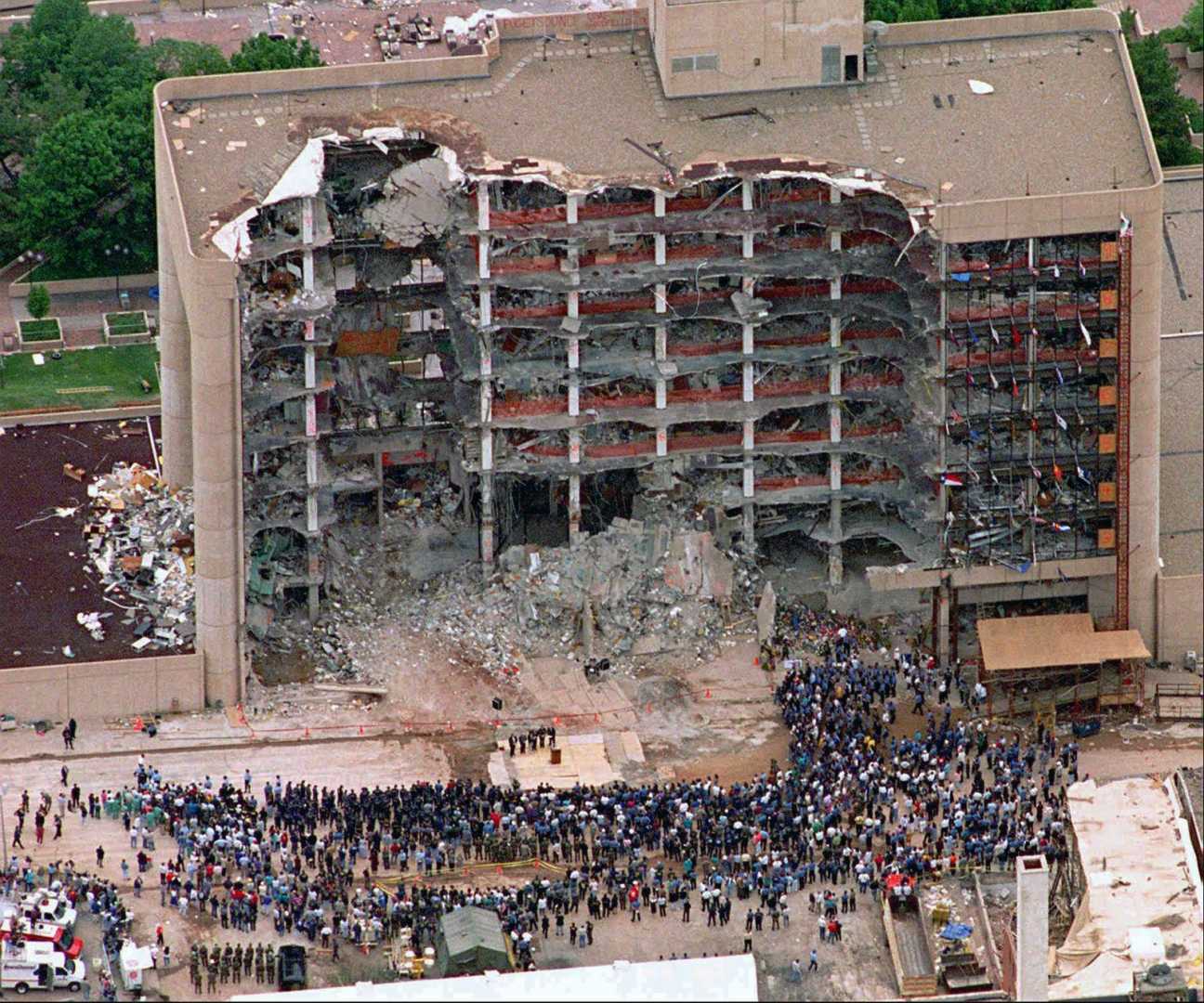News
Echoes of Oklahoma City Bombing Resonate Amid Resurgence of Far-Right Ideals

OKLAHOMA CITY, Okla. — Thirty years after Timothy McVeigh detonated a bomb at the Alfred P. Murrah Federal Building, killing 168 people, the echoes of his actions and ideology resonate through segments of American society today. The explosion, which took place on April 19, 1995, left a lasting scar on the nation, catalyzing discussions about domestic terrorism and far-right extremism.
McVeigh, a decorated military veteran, was arrested two days after the bombing and led into court with visible disdain from the public. The horrific act of violence targeted a government building during work hours, resulting in the tragic deaths of many, including 19 children at a daycare center located above the blast.
Then-President Bill Clinton responded to the tragedy with a vow to bring justice, stating it would be ‘swift, certain, and severe.’ His administration sought the death penalty for McVeigh, as the nation grappled with the shock of an unprecedented attack on civilian life.
At the time, even members of McVeigh’s own ideological circle were appalled by the innocent lives lost, particularly the children. Some began to question McVeigh’s methods, lamenting how the bombing undermined their movement. One acquaintance noted, ‘The bastard has put the Patriot movement back 30 years.’
Fast forward to 2025, and those once-fringe ideologies have gained traction and found footholds in mainstream discourse, echoing sentiments McVeigh held dear. Themes central to McVeigh’s beliefs, including distrust of government and an ‘America First’ agenda, have surfaced in modern political rhetoric.
The connections drawn between McVeigh’s violent ideology and contemporary factions raise concerns among scholars and political leaders. Clinton remarked that McVeigh’s rhetoric could nearly be indistinguishable from that found in today’s mainstream political landscape.
Janet Napolitano, former Secretary of Homeland Security, emphasized that while no one in power currently advocates for bombing federal buildings, the undercurrents of resentment toward perceived elites persist. ‘The notion that the country has somehow been stolen from them has become a very accepted view among many,’ she noted.
McVeigh’s motivations also reflect deeper societal discontent. He was fiercely opposed to foreign intervention, believing it diverted attention and resources from struggles in his hometown of Buffalo, New York. This sentiment mirrors current populist rhetoric that resonates with disaffected voters feeling overlooked by national leaders.
McVeigh’s radicalization was fueled by events like the Waco siege and the Ruby Ridge incident. His belief was that ordinary citizens must take up arms against a tyrannical government, a notion underlying modern far-right sentiments. His infamous statement, ‘The tree of liberty must be refreshed from time to time with the blood of patriots and tyrants,’ remains a chilling reminder of the ideologies that can inspire violence.
Historical interpretations of McVeigh’s actions reveal a failure to fully grasp the socio-political climate he emerged from. Many of McVeigh’s complicit associates, such as his accomplice Michael Fortier, saw no remorse when confronted with the casualties of the bombing.
Moreover, the initial legal narrative framed McVeigh as a lone actor alongside Nichols, neglecting a broader ideological network that possibly facilitated his attack. Recent analysis points to systemic issues and a growing anger in regions traditionally hurt by economic shifts and perceived government neglect.
As the anniversary approaches, many reflect on the importance of understanding the roots of such violence and the successful recruitment of individuals into extremist ideologies. Recognizing the conditions that fostered McVeigh’s radicalization is crucial in preventing similar acts and addressing the ongoing discontent expressed across the nation.
The legacy of the Oklahoma City bombing serves as both a stark reminder of the potential for domestic terrorism and a call for vigilance against radical ideologies that threaten the fabric of American society. Understanding this complex history is essential as the nation navigates a rapidly evolving political landscape.












